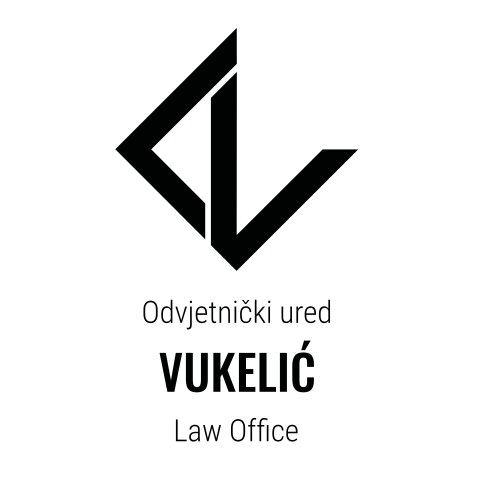Best Sexual Harassment Lawyers in Croatia
Share your needs with us, get contacted by law firms.
Free. Takes 2 min.
Or refine your search by selecting a city:
List of the best lawyers in Croatia
About Sexual Harassment Law in Croatia
Sexual harassment in Croatia is recognized as a form of discrimination and is prohibited under Croatian law. It is defined as any unwanted verbal, non-verbal, or physical behavior of a sexual nature that has the purpose or effect of violating the dignity of a person, particularly when such behavior creates an intimidating, hostile, degrading, or offensive environment. Croatian legislation aligns with EU directives on gender equality and non-discrimination, ensuring a legal framework for individuals to seek justice against harassment.
Why You May Need a Lawyer
There are several situations where a person may require legal help concerning sexual harassment in Croatia:
- Experiencing harassment in the workplace and needing to navigate the complaint process.
- Facing retaliation or unfair treatment after reporting harassment.
- Seeking justice and compensation for emotional or psychological harm caused by harassment.
- Need for mediation or negotiation with the harasser or their employer.
- Guidance on the rights and protections available under Croatian law.
- Preparation and representation if the case goes to court.
Local Laws Overview
Croatia's legal framework regarding sexual harassment consists of several key laws:
- The Anti-discrimination Act, which prohibits discrimination, including sexual harassment in the workplace.
- The Gender Equality Act, aiming to promote equality and protect against harassment based on gender.
- The Labour Act, which enforces employer obligations to prevent harassment and combat discrimination.
- Laws enforced by the Croatian Ombudsperson for Gender Equality, who provides oversight and addresses complaints of harassment.
These laws ensure that victims have avenues to report harassment and seek redress.
Frequently Asked Questions
What constitutes sexual harassment under Croatian law?
Sexual harassment is any unwanted verbal, non-verbal, or physical behavior of a sexual nature that affects the dignity of the victim, creating an intimidating, hostile, degrading, or offensive environment.
Can men be victims of sexual harassment too?
Yes, both men and women can be victims of sexual harassment, and the protection offered by Croatian law extends to all individuals, regardless of gender.
What should I do if I experience sexual harassment at work?
It's important to document the incidents, report the behavior to your HR department or a supervisor, and seek advice from a lawyer to understand your rights and options.
Am I protected against retaliation if I report harassment?
Yes, Croatian laws protect individuals from retaliation following harassment complaints. Employers are required to ensure a safe and non-discriminatory work environment.
What is the role of the Croatian Ombudsperson for Gender Equality?
The Ombudsperson provides guidance, addresses complaints, and monitors the enforcement of protections against discrimination and harassment.
Can I report harassment anonymously?
While anonymity can be maintained during initial consultations, formal legal processes may require disclosure of identity to effectively address the issue.
What are the potential outcomes of reporting harassment?
Outcomes can include workplace mediation, disciplinary action against the harasser, compensation, or court proceedings if necessary.
Is there a time limit for reporting sexual harassment?
Yes, there are statutory limits, so it's advisable to report harassment and seek legal advice as soon as possible.
What kind of evidence should I collect?
Emails, messages, recordings, or witness statements can support your case. Documenting details like date, time, and location is also helpful.
Can workplace harassment lead to criminal charges?
In severe cases, where harassment involves assault or threats, it may become a criminal matter under Croatian criminal law.
Additional Resources
Several organizations and bodies provide resources and support for victims of sexual harassment in Croatia:
- Ombudsperson for Gender Equality: Offers support and advice for gender-related discrimination and harassment incidents.
- Local NGOs: Some non-governmental organizations provide support services and advocacy for victims.
- Legal aid services: Access to professional legal advice can be helpful in navigating harassment cases.
Next Steps
If you suspect you are a victim of sexual harassment, consider taking the following steps:
- Document all instances of harassment, keeping detailed records.
- Report the behavior internally if it occurs in a workplace setting.
- Contact a lawyer who specializes in employment law or discrimination to understand your rights.
- Consider reaching out to organizations or governmental bodies specialized in providing support for harassment cases.
- If necessary, prepare to file a legal complaint to seek redress and protection from further harassment.
Remember that legal assistance is crucial in navigating the complexities of harassment claims and ensuring your rights are protected.
Lawzana helps you find the best lawyers and law firms in Croatia through a curated and pre-screened list of qualified legal professionals. Our platform offers rankings and detailed profiles of attorneys and law firms, allowing you to compare based on practice areas, including Sexual Harassment, experience, and client feedback.
Each profile includes a description of the firm's areas of practice, client reviews, team members and partners, year of establishment, spoken languages, office locations, contact information, social media presence, and any published articles or resources. Most firms on our platform speak English and are experienced in both local and international legal matters.
Get a quote from top-rated law firms in Croatia — quickly, securely, and without unnecessary hassle.
Disclaimer:
The information provided on this page is for general informational purposes only and does not constitute legal advice. While we strive to ensure the accuracy and relevance of the content, legal information may change over time, and interpretations of the law can vary. You should always consult with a qualified legal professional for advice specific to your situation.
We disclaim all liability for actions taken or not taken based on the content of this page. If you believe any information is incorrect or outdated, please contact us, and we will review and update it where appropriate.
Browse sexual harassment law firms by city in Croatia
Refine your search by selecting a city.

















